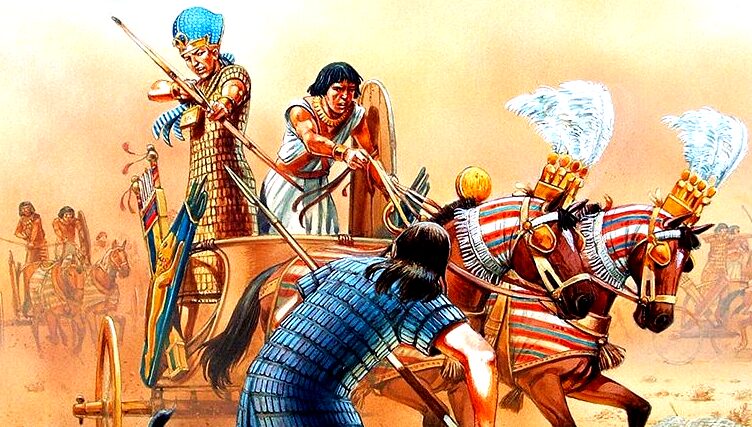
What is historical fiction? I know, boring, right? But I get this question a lot. Why write a fictional novel about King Tut? Why not write just straight history about the boy king. It is a fair question, and I think I finally have an answer.
As a history major at university, I had to admit that history can really be boring. So many dates and facts to learn and write about. Some define historical fiction as narratives that take place in the past and are characterized chiefly by an imaginative reconstruction of historical events and personages.
In the image above, an historian might write about the battle that Pharaoh Rameses is fighting, whereas I would like to be the guy in the blue armor aiming the spear at him. History doesn’t record his name, but wouldn’t it give wonderful insight into the battle itself and why they were fighting in the first place. All of the sounds of the horses, and warriors as well as the smells are put in by “imaginative reconstruction.” As we discuss in our Writer’s groups, the five senses bring the story to life. The facts cannot be changed, but the battle will come to life in a way a historical textbook can not.
I must say, I was thrilled to read “Leonardo” by Walter Isaacson recently. While it was straight history, it was filled with insights and passages that brought the genius to life. That’s what I would like to do with my characters.
There are not many subjects about ancient Egypt that haven’t been covered through the centuries. When new discoveries are made, or a new theory about the pyramids hits television, I want to write about it. I’ll let others judge whether I have succeeded in bringing the facts to life.
My website Collinsauthor.com